- Mar 27, 2018
- 7
- 2
- 36
- Country
- Philippines
- Gender
- Female
- Faith
- Presbyterian
- Marital Status
- Married
“I used to get scolded [by my] school teacher,” reflects Ashima, pictured above. “Sometime my teacher used to ask me to stand outside the class as punishment because I didn’t bring needed things like paper, books, pencil—whatever is needed in the class. I used to stand. I used to be punished, and I used to feel very ashamed and discouraged. When I came home and complained to my mother, my mother used to scold me again, saying ‘Your father doesn’t give me the money; how can I buy all these things and give to you?’ So these kind of difficulties and hardships I went through before I came to the Bridge of Hope.”
read this article on the Gospel for Asia website
Education Without Help
Ashima is just one of many children in her community who often skipped her classes at the local school, preferring to spend time with her friends.
“At least 40 to 50 percent of the children are dropouts after fifth or sixth grade,” shares Kushad, the Bridge of Hope regional financial coordinator who was part of surveying Ashima’s village.
When Kushad first came to Ashima’s community, he quickly saw the plight of the families, especially of the children.
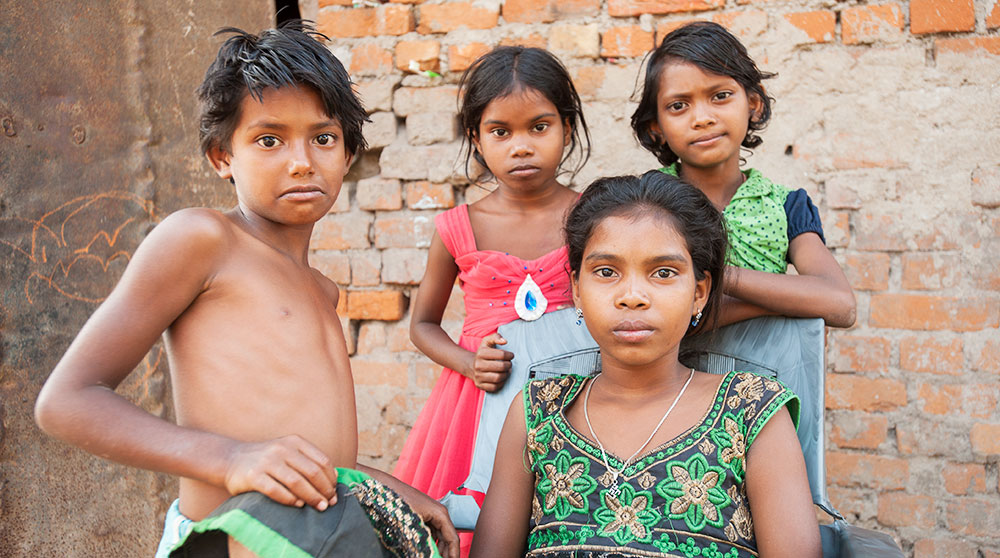
“When we were doing the survey, at that time we came to know that really such a pathetic condition of the children was there,” reflects Kushad. “We met few children, those who were roaming here and there, and some of them had very few clothes… We were trying to approach them, but they did not care… They were in their own world. They were playing, they were talking. The way they were talking, easily a person can know that they are not getting care.”
The Start of a Center
Starting a Bridge of Hope center is not an easy thing. It’s not that it’s challenging to find needy communities—there are more than can be counted—it’s challenging to determine which communities would be most blessed by a center. That’s why Kushad and his companions conduct surveys to observe housing, ask about employment and determine specific challenges.
Kushad learned about Ashima’s community through the ministry of a Sister of Compassion named Prashanthi, who cared for leprosy patients in the area. She had started tutoring local children and prayed God would start a Bridge of Hope center to bless even more children than she could on her own. A short while later, Kushad joined Prashanthi and another GFA-supported worker to take a closer look.
However, the first afternoon that Kushad came by, they found almost no adults to interview.
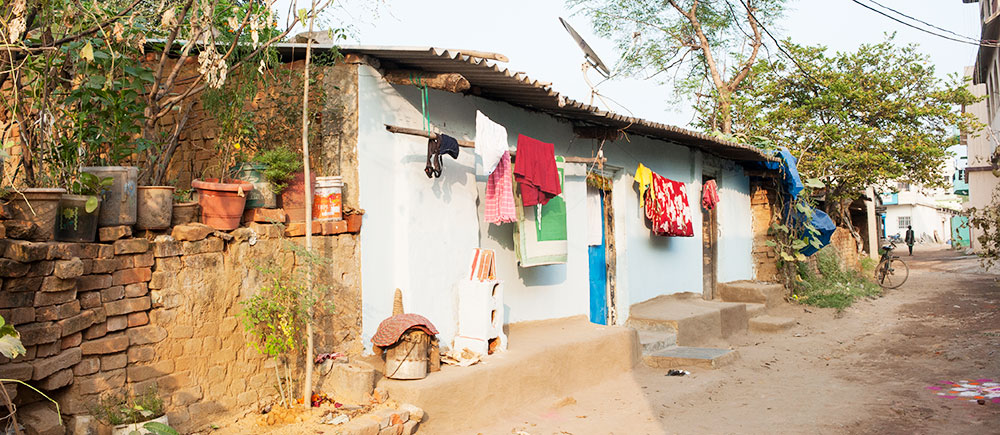
“We were going in the afternoon, and we came to know that no one is there; no mother is there, no parent. Whom to survey? Then we came to know that most of the parents are [out] for their work, and late in the evenings they [come back]. So next day, we went in the evening time. Though they came back, still they were not able to talk because they were drunk.”
Sadly, most fathers in this region turn to alcohol for some relief from their daily struggles. Many spend up to half their wages on drink, like Ashima’s father did, causing tremendous strain on the family.
“Most of them are drunk,” Kushad shares. “They are not able to recognize, or they cannot hug their children. That type of situation these children are facing.”
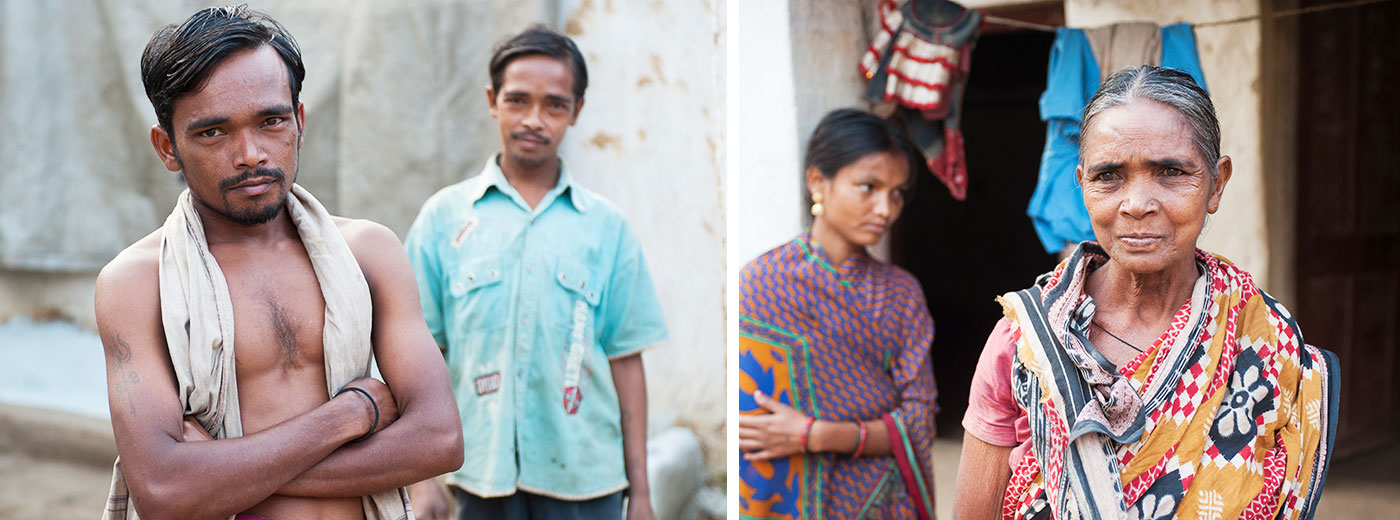
When Kushad and his team tried again early in the morning, “Then we came to know that really these children need a project center. Someone has to take care of their education, and someone has to take care of their basic needs. These children need some guidance regarding their future also.”
Changing Their Futures
Not long ago, these alcoholic parents were children themselves. They didn’t get any guidance or opportunity to excel, they didn’t know the value of education. How could they pass on to their children what they had never learned? But now, through Bridge of Hope, the futures of many children are changing.
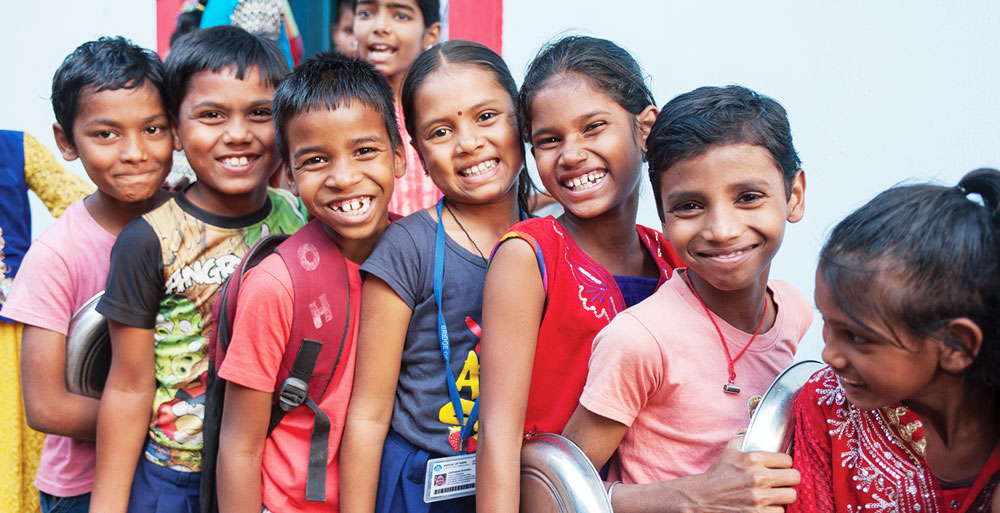
“Before coming to the Bridge of Hope, I was not able to study seriously because of the problem and inconvenience at home, and the financial problem that we are going through,” Ashima says.
Less than a year later, Ashima’s life had transformed.
“My future ambition is that I want to become a medical doctor,” she shares. “Especially I want to serve the poor from our society because … once we were very poor, and because we were poor, we were not able to buy so many things. It affected us very badly. And now, because Bridge of Hope is here, this is helping poor and the needy people like us; I also want to help and serve all the poor children and poor people who are suffering.”
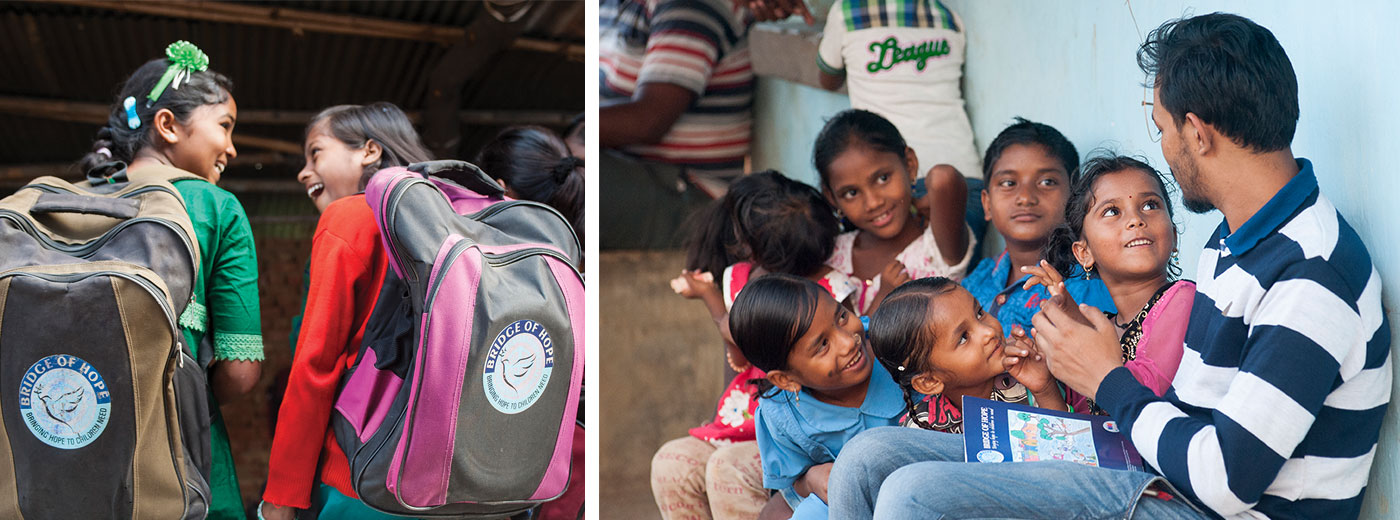
Ashima is one of more than 75,000 children whose futures are changing or have changed through GFA-supported Bridge of Hope centers. She is getting practical supplies her family couldn’t afford, nutritious meals and special help every school day.
What God has done in Ashima’s life is truly remarkable, but Kushad knows there is still so much to do.
“Our work is like a drop in the ocean,” Kushad says. “We tried lots of things from our side, but if we see their needs, their needs are so big. We need to do a lot of work among these people and other groups, also.”
read this article on the Gospel for Asia website
© 2018 by K.P. Yohannan, the president and founder of Gospel for Asia. It was written with the intention of encouraging and edifying the Body of Christ. To learn more about Gospel for Asia or to receive additional free resources, visit Gospel for Asia's website.
*Names of people and places may have been changed for privacy and security reasons. Images are GFA stock photos used for representation purposes and are not the actual person/location, unless otherwise noted.
read this article on the Gospel for Asia website
Education Without Help
Ashima is just one of many children in her community who often skipped her classes at the local school, preferring to spend time with her friends.
“At least 40 to 50 percent of the children are dropouts after fifth or sixth grade,” shares Kushad, the Bridge of Hope regional financial coordinator who was part of surveying Ashima’s village.
When Kushad first came to Ashima’s community, he quickly saw the plight of the families, especially of the children.

“When we were doing the survey, at that time we came to know that really such a pathetic condition of the children was there,” reflects Kushad. “We met few children, those who were roaming here and there, and some of them had very few clothes… We were trying to approach them, but they did not care… They were in their own world. They were playing, they were talking. The way they were talking, easily a person can know that they are not getting care.”
The Start of a Center
Starting a Bridge of Hope center is not an easy thing. It’s not that it’s challenging to find needy communities—there are more than can be counted—it’s challenging to determine which communities would be most blessed by a center. That’s why Kushad and his companions conduct surveys to observe housing, ask about employment and determine specific challenges.
Kushad learned about Ashima’s community through the ministry of a Sister of Compassion named Prashanthi, who cared for leprosy patients in the area. She had started tutoring local children and prayed God would start a Bridge of Hope center to bless even more children than she could on her own. A short while later, Kushad joined Prashanthi and another GFA-supported worker to take a closer look.
However, the first afternoon that Kushad came by, they found almost no adults to interview.

“We were going in the afternoon, and we came to know that no one is there; no mother is there, no parent. Whom to survey? Then we came to know that most of the parents are [out] for their work, and late in the evenings they [come back]. So next day, we went in the evening time. Though they came back, still they were not able to talk because they were drunk.”
Sadly, most fathers in this region turn to alcohol for some relief from their daily struggles. Many spend up to half their wages on drink, like Ashima’s father did, causing tremendous strain on the family.
“Most of them are drunk,” Kushad shares. “They are not able to recognize, or they cannot hug their children. That type of situation these children are facing.”

When Kushad and his team tried again early in the morning, “Then we came to know that really these children need a project center. Someone has to take care of their education, and someone has to take care of their basic needs. These children need some guidance regarding their future also.”
Changing Their Futures
Not long ago, these alcoholic parents were children themselves. They didn’t get any guidance or opportunity to excel, they didn’t know the value of education. How could they pass on to their children what they had never learned? But now, through Bridge of Hope, the futures of many children are changing.

“Before coming to the Bridge of Hope, I was not able to study seriously because of the problem and inconvenience at home, and the financial problem that we are going through,” Ashima says.
Less than a year later, Ashima’s life had transformed.
“My future ambition is that I want to become a medical doctor,” she shares. “Especially I want to serve the poor from our society because … once we were very poor, and because we were poor, we were not able to buy so many things. It affected us very badly. And now, because Bridge of Hope is here, this is helping poor and the needy people like us; I also want to help and serve all the poor children and poor people who are suffering.”

Ashima is one of more than 75,000 children whose futures are changing or have changed through GFA-supported Bridge of Hope centers. She is getting practical supplies her family couldn’t afford, nutritious meals and special help every school day.
What God has done in Ashima’s life is truly remarkable, but Kushad knows there is still so much to do.
“Our work is like a drop in the ocean,” Kushad says. “We tried lots of things from our side, but if we see their needs, their needs are so big. We need to do a lot of work among these people and other groups, also.”
read this article on the Gospel for Asia website
© 2018 by K.P. Yohannan, the president and founder of Gospel for Asia. It was written with the intention of encouraging and edifying the Body of Christ. To learn more about Gospel for Asia or to receive additional free resources, visit Gospel for Asia's website.
*Names of people and places may have been changed for privacy and security reasons. Images are GFA stock photos used for representation purposes and are not the actual person/location, unless otherwise noted.

